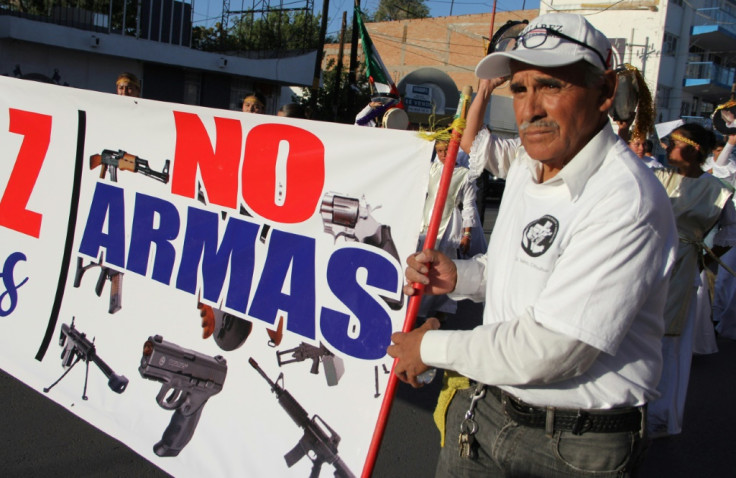
According to a recent report from the North American Congress on Latin America (NACLA), in the first eight months of 2023, annualized U.S. exports to Latin America of guns, munitions and parts increased by 74 percent since 2021.
Firearms have mostly been sold to Mexico and Guatemala, with the former accounting for 46 percent of U.S. exports to the region and nearly $60 million spent on firearms, ammunition, parts and explosives between January and August.
Overall, Mexico imported 10,364 military rifles worth over $17 million and $21 million worth of ammunition. The figure is four times higher than the number of annual exports over the last four years.
According to the NACLA report, the spike in military rifle imports by Mexico is facilitated by Sig Sauer Inc., which is German-owned but based in New Hampshire.
This surge in legal exports adds to the existing illicit flow of U.S. firearms into Mexico, exacerbating the violence fueled by criminal organizations. An estimated 250,000 guns are trafficked annually from the U.S. to Mexico, something that has led its government to take legal action against U.S. gun manufacturers and dealers.
This information from NACLA echoes recent reporting from the Latin Times with journalist Ioan Grillo, who covers Mexican cartels and wrote the book, "Blood Gun Money," which detailed just how legal firearms from the U.S. make their way into the hands of these illegal groups. He said the influx of these American weapons to cartels catalyzed a movement in which they changed their operations, going from operating like street gangs to paramilitary groups.
"What we see in this time is this massive escalation of violence, which is also the year that the Assault Rifle ban expired. That made it much easier to buy large quantities of AK-47s and AR-15s in the United States and bring them to Mexico," Grillo said. "What we saw in Mexico around this time was a change in the violence and the crime, from the kind of old school gang banger guys with shaved heads and tattoos often fighting with pistols or knives, into what some of us call paramilitary organized crime."
Grillo explained how he spoke to a man jailed in Mexico for firearm trafficking. He said he would buy about a dozen rifles every weekend at gun shows in the Dallas area without any papers and then would take them to Mexico. Following the revelation, Grillo said he went undercover to gun shows and found people selling brand-new guns without any requirement of identification or paperwork. He described this as an abuse of the private sale loophole.
The surge in gun imports to the region is attributed to the belief that more firearms will reduce violence, accelerated militarization, particularly in Mexico, and aggressive marketing by the gun industry. The U.S. Commerce Department, responsible for overseeing exports since a 2020 regulatory change, has been implicated in facilitating deals between U.S. gun suppliers and Latin American brokers, especially at the massive annual SHOT gun show in Las Vegas.
"Invitees of the US government detailed how Commerce officials booked flights and hotels for Guatemalan firearms shops, scored discounted Cirque du Soleil tickets for Brazilian importers, provided matchmaking services for Peruvian buyers, and helped rush through a visa approval for a politician in Brazil's "bullet caucus," a band of National Congress members focused on fighting for gun rights," according to Bloomberg reporting.
In response to these Bloomberg report, the Commerce Department announced a 90-day hold on new licenses for exports to non-governmental gun users in some countries. However, this measure excludes exports to military and police forces, approved licenses, and exports to countries like Mexico, Argentina and Israel.
© 2025 Latin Times. All rights reserved. Do not reproduce without permission.





